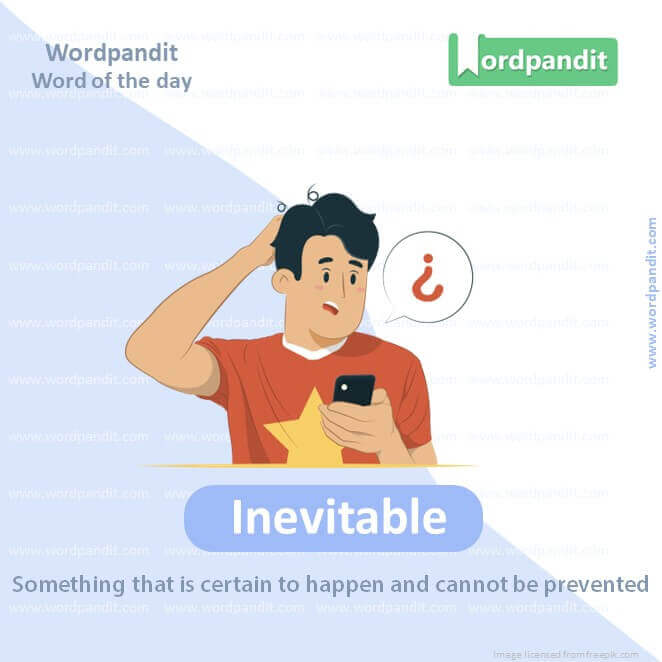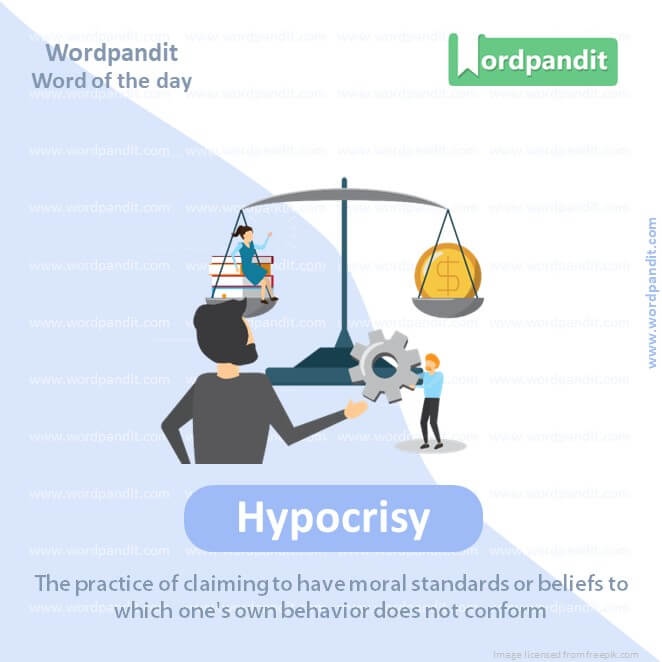Daily Vocabulary Words: List of Daily Used Words in Leading Indian Newspapers
Hi there. Welcome to this special section @ Wordpandit. Our endeavour here is straightforward: highlighting daily vocabulary words that you would come across in leading newspapers in the country. We have included the following newspapers in our selection:
• The Times of India
• The Economic Times
• Hindustan Times
• Mint
• Indian Express
We are putting in extensive work to develop your vocabulary. All you have to do is be regular with this section and check out this post daily. This is your repository of commonly used words; essentially, we are posting a list of daily used words. Hence, this has significant practical application as it teaches you words that are commonly used in leading publications mentioned above.
Visit the website daily to learn words from leading Indian newspapers.
WORD-1: INCINERATED
CONTEXT: A massive fire broke out at the warehouse, and by dawn, everything inside had been incinerated.
SOURCE: The Times of India
EXPLANATORY PARAGRAPH: Imagine you have a piece of paper and you use fire to burn it completely until it turns into ash. That’s what we call “incinerated”. It means to burn something completely.
MEANING: Completely burned or reduced to ashes (verb).
PRONUNCIATION: in-SIN-uh-ray-ted
SYNONYMS: burned, charred, cremated, consumed, torched, scorched, immolated
USAGE EXAMPLE:
1. The old documents were incinerated for security reasons.
2. The trash is incinerated in a special facility.
3. After the accident, the car was completely incinerated.
4. The wood was quickly incinerated in the blazing fire.

WORD-2: INEVITABLE
CONTEXT: With the rapid urbanization of the city, many believe that infrastructural challenges are inevitable.
SOURCE: Hindustan Times
EXPLANATORY PARAGRAPH: Imagine something that is going to happen no matter what, like the sun rising every day. That’s called “inevitable”. It means something is sure to happen and we can’t stop it.
MEANING: Something that is certain to happen and cannot be prevented (adjective).
PRONUNCIATION: in-EV-it-uh-bull
SYNONYMS: certain, sure, fated, destined, unavoidable, inescapable, predestined
USAGE EXAMPLE:
1. Growing older is an inevitable part of life.
2. It was inevitable that they would find out the truth.
3. After ignoring the warnings, the accident became inevitable.
4. Given their differences, a clash was inevitable.

WORD-3: HYPOCRISY
CONTEXT: The opposition pointed out the hypocrisy of the current administration, contrasting their campaign promises with their recent decisions.
SOURCE: Indian Express
EXPLANATORY PARAGRAPH: Imagine someone who tells others not to eat candy because it’s bad but then secretly eats candy themselves. That’s called “hypocrisy”. It means saying one thing but doing the opposite.
MEANING: The practice of claiming to have moral standards or beliefs to which one’s own behaviour does not conform (noun).
PRONUNCIATION: hi-POK-ruh-see
SYNONYMS: insincerity, deceit, pretense, duplicity, double-dealing, two-facedness
USAGE EXAMPLE:
1. She was tired of the hypocrisy of her colleagues.
2. His speech was filled with hypocrisy.
3. She pointed out the hypocrisy in his actions.
4. Many saw it as sheer hypocrisy when he criticized others for the very thing he did.
WORD-4: ANIMOSITY
CONTEXT: The longstanding animosity between the two neighboring countries was once again evident during the recent summit.
SOURCE: The Economic Times
EXPLANATORY PARAGRAPH: Imagine you have a toy and someone keeps taking it from you. You might start to feel really angry or upset with that person. That strong feeling of not liking them is called “animosity”.
MEANING: Strong dislike or hatred (noun).
PRONUNCIATION: an-i-MOS-it-ee
SYNONYMS: hostility, ill will, bitterness, resentment, rancor, antipathy
USAGE EXAMPLE:
1. There was a lot of animosity between the two rival teams.
2. Their past disagreements led to animosity.
3. She could feel the animosity in the room.
4. Despite their past animosity, they decided to work together.

WORD-5: SILOED
CONTEXT: The company is looking to break down barriers and improve communication, as departments have been too siloed in recent years.
SOURCE: Live Mint
EXPLANATORY PARAGRAPH: Imagine you have different boxes, and you put different toys in each box and never mix them. That’s a bit like “siloed”. It means keeping things separate from each other, especially in a company where different groups don’t share information.
MEANING: Isolated in a group or system where little communication or cooperation occurs between the groups (adjective/verb).
PRONUNCIATION: SIGH-load
SYNONYMS: separated, isolated, compartmentalized, segregated, partitioned, divided
USAGE EXAMPLE:
1. The different departments in the company were siloed, causing communication problems.
2. Data should not be siloed if we want a comprehensive view.
3. Teams that are siloed often lack collaboration.
4. The new software aims to break down siloed information.

WORD-6: SURREAL
CONTEXT: Walking through the art exhibition was a surreal experience, with the artist blending reality and fantasy seamlessly.
SOURCE: The Times of India
EXPLANATORY PARAGRAPH: Imagine you are in a dream where you see flying elephants and talking trees. That dream feels strange and not real, right? That’s what “surreal” means – something that seems dreamlike or unreal.
MEANING: Having the qualities of surrealism; bizarre or dreamlike (adjective).
PRONUNCIATION: sur-REAL
SYNONYMS: dreamlike, unreal, bizarre, strange, otherworldly, fantastical
USAGE EXAMPLE:
1. The painting had a surreal atmosphere.
2. It was a surreal moment when she met her favorite actor.
3. The landscape looked surreal in the moonlight.
4. The news was so shocking, it felt surreal.
WORD-7: TOLERANCE
CONTEXT: The city’s annual Tolerance Festival aims to promote understanding and acceptance among its diverse communities.
SOURCE: Hindustan Times
EXPLANATORY PARAGRAPH: Imagine your friend has a toy that you don’t like, but you let them play with it without getting mad. That’s called “tolerance”. It means being okay with something different or accepting things even if you don’t like or agree with them.
MEANING: Acceptance or patience with the beliefs or behavior of others (noun).
PRONUNCIATION: TOL-er-ans
SYNONYMS: acceptance, patience, forbearance, understanding, open-mindedness, leniency
USAGE EXAMPLE:
1. The city is known for its cultural tolerance.
2. We need to teach children tolerance and understanding.
3. She has low tolerance for ignorance.
4. The medicine increased his tolerance to pain.
WORD-8: PARABLE
CONTEXT: The writer’s latest book draws on ancient parables to convey modern life lessons.
SOURCE: Indian Express
EXPLANATORY PARAGRAPH: A parable is like a special kind of story. It’s a story that teaches us a lesson, kind of like how some fairy tales teach us to be good. So, a parable is a story that helps us understand something important.
MEANING: A simple story used to illustrate a moral or lesson (noun).
PRONUNCIATION: PAR-uh-bull
SYNONYMS: fable, allegory, tale, story, moral tale, lesson
USAGE EXAMPLE:
1. The teacher shared a parable about the importance of kindness.
2. Many religious texts contain parables.
3. She remembered the parable and the lesson it taught.
4. The old man often spoke in parables.
WORD-9: ROTE
CONTEXT: Educators are debating the effectiveness of rote learning, suggesting that a more holistic approach might be beneficial for students.
SOURCE: The Economic Times
EXPLANATORY PARAGRAPH: Imagine you sing the same song every day, over and over again, without thinking about the words. That’s called “rote”. It means learning something by repeating it many times without understanding it.
MEANING: Memorization by repetition without understanding (noun).
PRONUNCIATION: ROHT
SYNONYMS: repetition, memorization, mechanical learning, parrot-fashion, by heart, automatic
USAGE EXAMPLE:
1. She learned the poem by rote.
2. The teacher discouraged learning by rote.
3. Knowing math is more than just rote memorization.
4. He could recite the entire document by rote.

WORD-10: FORMIDABLE
CONTEXT: The national team’s formidable performance in the tournament has elevated them to the top of the world rankings.
SOURCE: Live Mint
EXPLANATORY PARAGRAPH: Imagine you see a big, tall mountain that looks very hard to climb. You might think, “Wow, that looks tough!” That mountain is “formidable”. It means something is strong, powerful, or a bit scary because it’s so challenging.
MEANING: Inspiring fear or respect through being impressively powerful, capable, or intense (adjective).
PRONUNCIATION: for-MID-uh-bull
SYNONYMS: intimidating, imposing, fearsome, daunting, impressive, strong
USAGE EXAMPLE:
1. The team faced a formidable opponent.
2. Climbing the mountain is a formidable challenge.
3. She is a formidable debater.
4. The ancient castle stood as a formidable structure against the skyline.
Vocabulary Daily Words
Among the myriad aspects of language learning, the role of ‘vocabulary daily words’ attests to their undeniable importance. These everyday words form the bedrock of communication. Whether used in casual chat or formal discussion, the fluency and understanding of ‘vocabulary daily words’ can significantly uplift the quality of interaction. However, the vital question is, how to effectively learn these ‘vocabulary daily words’?
The crux of learning ‘vocabulary daily words’ lies in a well-rounded approach that encompasses exposure, understanding, memorization, and practice. Rote memorization might seem like a quick solution, but it lacks context and, thereby, retention. Hence, opt for a diverse range of resources like books, newspapers, podcasts, and digital media. These will bring ‘vocabulary daily words’ to life, providing real-life usage examples and making the learning process inherently engaging.
Next, using memory-enhancing techniques can significantly improve retention of ‘vocabulary daily words’. Techniques such as flashcards or the Leitner System align with the principles of spaced repetition, allowing more effective and long-term learning. Incorporating mnemonic devices, associating new words with unique stories or images, can further facilitate this learning process.
The key to fully grasping ‘vocabulary daily words’ lies in practical usage. Make it a habit to use these words in your daily communications. Whether it’s a friendly conversation, a professional email, or a social media post, try integrating these new words. Doing so provides hands-on practice, strengthening your comprehension and application of these words.
In a nutshell, ‘vocabulary daily words’ are a treasure in the language learning landscape. By harnessing diversified resources, utilizing memory techniques, and actively using these words, your grip on the ‘vocabulary daily words’ will strengthen significantly. So, turn the pages, hit play, start a conversation, and let these ‘vocabulary daily words’ shape the story of your linguistic journey.







